By: Wes Erikson
Fisherman Wes Erikson shares his experiences fishing under strict Canadian discard legislation to demonstrate how the Common Fisheries Policy landing obligation can result in sustainably managed and economically viable European fisheries.
My story:
I have not missed a fishing season since I was five-years old. At that time, anyone could go fishing commercially; all you needed was a boat and a strong back (my grandfather used to say a weak mind helped!). Fishing with my father and grandfather at age 16, I skippered a 14-metre salmon troller and at 20, in 1987, I purchased my first vessel – a 15 metre halibut/salmon vessel. When I became a vessel owner, I decided it was important to get involved in the fisheries advisory process, and I remain involved to this day.
My fishery has evolved and matured as a result of concerns that fishermen have regarding safety, illegal activities, and price. Managers, scientists, and ENGOs have added to this with issues surrounding monitoring, accountability, discards, MPA’s, seabird avoidance, and more. Sometimes change was forced upon us, and it is worth noting that fishermen can navigate cannily around any rule. We are natural problem solvers. We have to be, because lost lives and financial ruin are a very possible outcome of problems that arise in our field. This is one of the reasons why “only fishermen can talk to fishermen.”
Co-management gave us the opportunity to be involved in decision making and regulation changes; real co-management, not just talking to fishermen. This requires time, trust, and allowing both parties to make mistakes and learn from them. The industry was given the chance to grow and mature, but growing up is not easy. None of this was easy. In fact, many changes seemed impossible. Read More










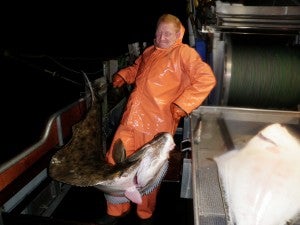
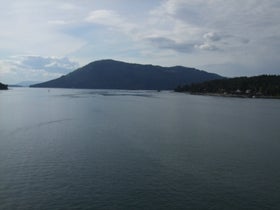 I just read
I just read 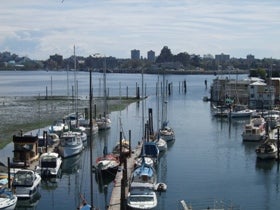 Ecotrust highlights that catch shares have led to increases in the value of fisheries. Significant societal benefits are associated with these changes, including providing fishermen and crew with more stable jobs; providing opportunities for creative business innovations; more highly valued seafood; and increased investment in modernizing fishing boats and gear. However, Ecotrust focuses on the economic impacts on a specific group of stakeholders in fisheries: primarily fishing crews. Ecotrust’s central complaint is that the practice of leasing quota share disadvantages British Columbia fishing crews, compared to share owners or other stakeholders.
Ecotrust highlights that catch shares have led to increases in the value of fisheries. Significant societal benefits are associated with these changes, including providing fishermen and crew with more stable jobs; providing opportunities for creative business innovations; more highly valued seafood; and increased investment in modernizing fishing boats and gear. However, Ecotrust focuses on the economic impacts on a specific group of stakeholders in fisheries: primarily fishing crews. Ecotrust’s central complaint is that the practice of leasing quota share disadvantages British Columbia fishing crews, compared to share owners or other stakeholders.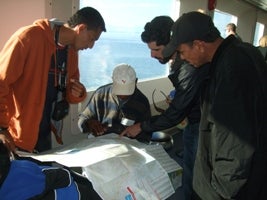 Several times a year, EDF takes a delegation of fishermen, policy makers and other leaders in the ocean conservation community and fisheries industry to British Columbia to see, first hand, an effective catch shares program at work. Last week, Larry Epstein, Ayelet Hines, Michael Clayton, and Nicanor Requena of the EDF Oceans program hosted a delegation of fisheries stakeholders from Belize on an international exchange to visit the B.C. groundfish fishery.
Several times a year, EDF takes a delegation of fishermen, policy makers and other leaders in the ocean conservation community and fisheries industry to British Columbia to see, first hand, an effective catch shares program at work. Last week, Larry Epstein, Ayelet Hines, Michael Clayton, and Nicanor Requena of the EDF Oceans program hosted a delegation of fisheries stakeholders from Belize on an international exchange to visit the B.C. groundfish fishery.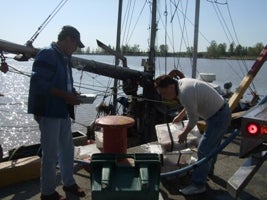 Some of the fisheries managed by catch shares in the B.C. groundfish fishery have increased in value ten-fold as a result of healthier and improved fish stocks and habitat. During the conversations among B.C. and Belizean government managers, fishermen, and conservationists, the delegation learned how the B.C. catch share evolved and discussed lessons learned. In addition, the delegation visited the catch shares monitoring facility and observed the process of assessing and recording the catch at a dockside offload site.
Some of the fisheries managed by catch shares in the B.C. groundfish fishery have increased in value ten-fold as a result of healthier and improved fish stocks and habitat. During the conversations among B.C. and Belizean government managers, fishermen, and conservationists, the delegation learned how the B.C. catch share evolved and discussed lessons learned. In addition, the delegation visited the catch shares monitoring facility and observed the process of assessing and recording the catch at a dockside offload site.